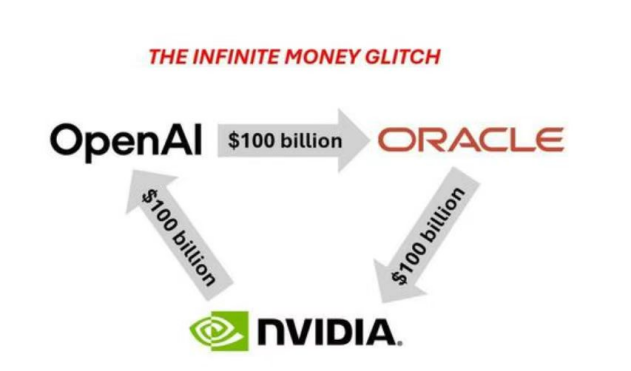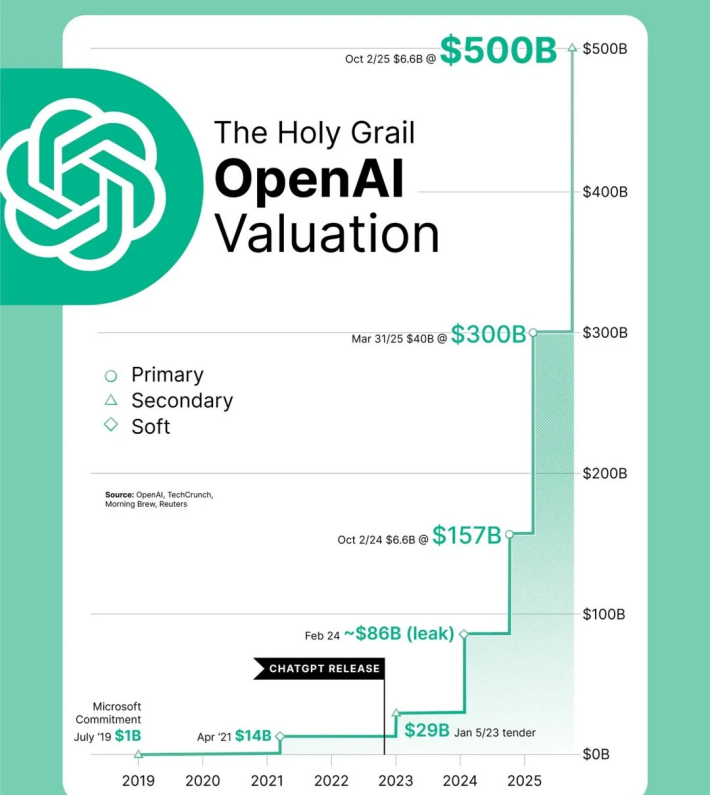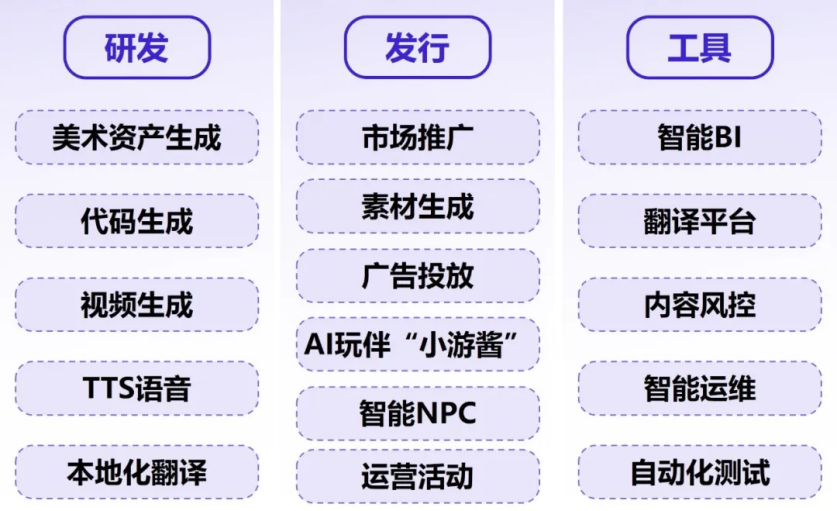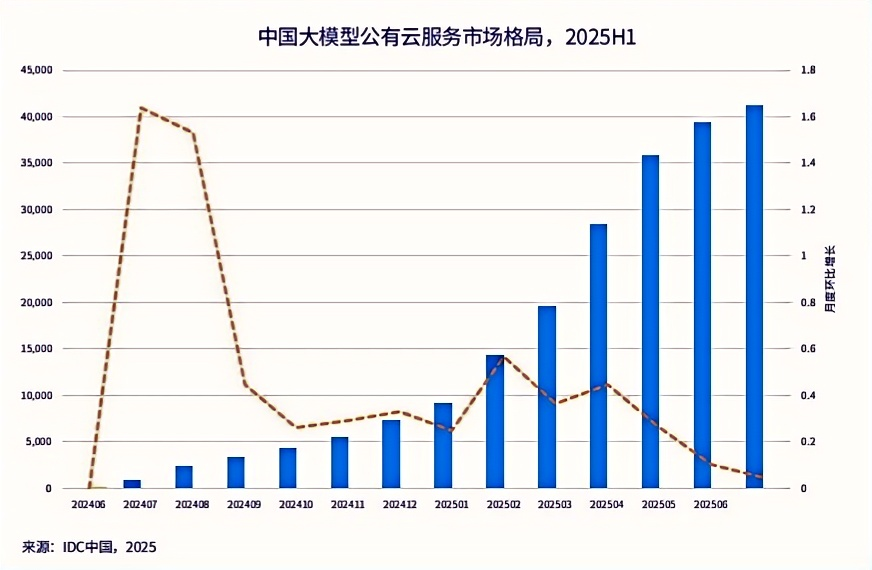AI This Year: The Dawn of a Golden Era or the Onset of a Bubble?
![]() 11/17 2025
11/17 2025
![]() 624
624
Harnessing AI Wisely: The Crux of the Matter
Written by / Chen Dengxin
Edited by / Li Ji
Layout by / Annalee
This year, AI has taken center stage, captivating global attention.
In 2025, AI reached a fever pitch, with NVIDIA's market capitalization soaring past the $5 trillion mark for the first time overseas, Microsoft's surpassing $4 trillion, and Google's breaking through the $3 trillion threshold. Meanwhile, domestically, Cambricon's stock price repeatedly hit new highs, competing with Kweichow Moutai for the title of 'Stock King' in the A-share market.
This surge has been accompanied by a persistent debate over whether AI is experiencing a bubble.
Doubts have arisen not only within the tech community but also on Wall Street, where funds represented by Michael Burry, the inspiration behind the movie 'The Big Short,' have taken a definitive short position.
Why Has the AI Bubble Theory Been Making Waves for a Year?
A Clash of Pessimists and Optimists
Since the advent of generative AI, concerns about 'high investment and low returns' have lingered, yet optimism has generally prevailed.
However, the emergence of DeepSeek marked a turning point.
DeepSeek slashed costs through algorithmic optimization, achieving maximum results with minimal resources, and causing a stir in both the tech and financial sectors.
Under the banner of 'high efficiency + low cost,' overseas giants like Microsoft and Google began to rethink their strategies, quietly reducing capital expenditures at one point, thus reigniting discussions about the AI bubble.
Yet, as time passed, the industry gained new perspectives.
An industry insider told Xinkedu, 'Low-cost software solutions offer high cost-effectiveness, but this does not diminish the demand for computing power. Especially in a multimodal context, the demand for computing power by large models will grow exponentially, as the continuous enhancement of multimodal model capabilities is inevitable.'
Consequently, discussions about the AI bubble quickly faded.
Unexpectedly, in September 2025, OpenAI inked a five-year, $300 billion cloud computing deal with Oracle, followed by massive cooperation agreements with NVIDIA, AMD, Microsoft, Samsung, and others, with the overall scale exceeding $1 trillion.

Source: Wall Street See
This sparked intense scrutiny of the AI circular economy.
Michael Cembalest, an analyst at JPMorgan Chase, remarked, 'AI companies promise to pay hefty sums to cloud service providers in the future → cloud service providers use this narrative to borrow funds for infrastructure construction → infrastructure is then leased back to AI companies, creating an infinite money loop.'
Correspondingly, OpenAI's valuation soared to $1 trillion, with plans to go public in 2027, potentially becoming the world's largest IPO.
However, the problem lies in OpenAI's less-than-optimistic fundamentals.
According to The Wall Street Journal, in the third quarter of 2025, OpenAI incurred a staggering $12 billion loss, marking one of the largest quarterly losses in tech history.

Source: SMZDM
Against this backdrop, the AI bubble theory resurfaced, prompting NVIDIA's CEO Jensen Huang to personally refute the rumors, stating that increased investment in AI infrastructure is natural and reasonable, as 'the transition from traditional CPU-dominated computing to today's GPU-driven generative AI computing has just begun.'
Towards the end of the year, legendary Wall Street investor Michael Burry escalated the doubts to a fever pitch.
'Sometimes we see bubbles, sometimes there are things to do, and sometimes the only winning move is not to play,' Burry said, believing that AI investment has lost its rationality and may repeat the mistakes of the 1999 internet bubble burst.
Indeed, internationally renowned institutions such as Bridgewater Associates reduced their holdings of a series of AI-related stocks in the third quarter of 2025, indirectly corroborating these concerns.
It's important to note that the market still has its advocates.
Another Wall Street legend, 'Woodie,' stated, 'I don't believe there is a bubble in artificial intelligence.'
The reason lies in the fact that current AI leaders have achieved cash flow closure, which is distinct from the lack of a profitable model during the internet bubble era.
Berkshire Hathaway, led by Warren Buffett, established a new position in Google in the third quarter of 2025, becoming its tenth-largest holding with 17.84 million shares.
According to IDC data, by 2030, AI will generate nearly $22.3 trillion in economic revenue, accounting for 3.7% of global GDP.
Shifts in the Competitive Landscape: To C vs. To B
While the debate over the AI bubble continues, it's undeniable that AI is quietly transforming people's lifestyles and business competition models.
This is evident from AI's role as the protagonist in game development in 2025.
Previously, game development required the collaborative efforts of talents from multiple fields, including programmers, sound engineers, testers, and art designers, and took several years of refinement before entering the market.
Nowadays, AI technology has significantly lowered the threshold for game development.
For example, traditional NPCs (Non-Player Characters) interacted with players by calling preset content, resulting in mechanical dialogue. After integrating with large models, they evolved into 'intelligent NPCs,' responding fluently to players like real people, thus providing higher emotional value. Jillie, the digital spokesperson for Tencent's 'Game for Peace,' is a prime example of intelligent NPCs.
Another example is traditional teammates, who can be unpredictable and prone to friction, leading to unnecessary conflicts. AI teammates, on the other hand, eliminate such concerns, avoiding being dragged down and reducing social costs while providing satisfaction, making them an excellent choice for introverted players. The companion system in NetEase's 'Justice Online' is a typical representative of AI teammates.
The 'China Game Industry New Quality Productivity Development Report 2025' revealed, 'Artificial intelligence technology has deeply penetrated key aspects such as game design and development, user behavior analysis, and operational strategy optimization, significantly improving work efficiency and gaining widespread recognition.'

Source: Game Industry Report
In fact, a single person can now develop a decent independent game within a few months.
Public information shows that in March 2025, a game developer used the AI code editor Cursor and the large model Grok 3 to develop a 3D multiplayer web game similar to 'Microsoft Flight Simulator' in just three hours, earning 120,000 yuan within nine days of its launch.
As a result, the number of games has surged.
Taking the Steam platform as an example, the number of games publicly disclosed to use generative AI technology surged by nearly 800% in 2025, leading to widespread concerns about a 'player shortage.'
Beyond the To C market, the To B sector has also been significantly impacted.
In 2025, the arena of cloud computing evolved from traditional competition over cloud resources to competition over AI capabilities, with the strength of AI capabilities becoming the primary consideration, marking a seismic shift in the rules of the cloud market game.
In layman's terms, a company adhering to traditional methods is like a fuel-powered car; choosing to go 'cloud' is like an electric car; and opting for 'AI cloud' is like a smart car. The differences among the three are stark.

Source: IDC
Consequently, AI cloud has become a new competitive frontier for giants, with Baidu Intelligent Cloud and Volcano Engine standing out.
Baidu Intelligent Cloud is a pioneer, early on adopting the core strategy of 'integrating cloud and intelligence,' and has consecutively won the championship in China's AI public cloud market for six years and ten times in total.
Volcano Engine, on the other hand, is a disruptor, making significant strides in the niche field of MaaS (Model as a Service) and emerging as a heavyweight player in the track.
'Dingjiao' stated, 'In this cloud computing transformation driven by AI, the market has shifted from a simple competition over resources to a complex competition over ecosystems. In the future, there may not be an absolute first place, but ecological leaders will emerge in different vertical fields.'
It's important to note that the growing pains brought about by AI have also become increasingly apparent in 2025.
The 'October 2025 Job Cut Announcement Report' shows that as of the end of October 2025, the total number of layoffs by U.S. companies has exceeded 1 million, with AI and other disruptive technologies being increasingly cited as reasons for layoffs by enterprises.
Additionally, multiple overseas media outlets reported that the scale of layoffs in the Silicon Valley tech industry has exceeded 100,000 in 2025, with companies like Meta, Google, and Amazon reconstructing their job systems through AI technology.
Various signs indicate that the trend of 'either learn AI or pack your bags' is brewing, and AI will become a mandatory skill for professional careers in the future, rather than an optional one.
In summary, investing in AI infrastructure has become a consensus in the industry. During this process, irrationalities are inevitable, but as long as AI technology continues to be implemented, continuously enhancing productivity and creativity, there is no need for undue concern. After all, after the internet bubble burst, companies like Microsoft and Google grew into towering trees.
A Wall Street analyst stated, 'No company can sustain such enormous AI expenditures indefinitely, so the companies that lead and maximize profits from AI will emerge as winners.'
So, who will be the first to break through? Let's wait and see.







